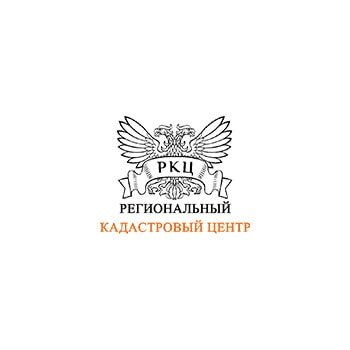Best Administrative Lawyers in Russia
Share your needs with us, get contacted by law firms.
Free. Takes 2 min.
Or refine your search by selecting a city:
List of the best lawyers in Russia
About Administrative Law in Russia
Administrative law in Russia governs the activities of executive branch agencies and the regulatory frameworks within which they operate. It is a crucial area of law that ensures government entities act within the law and uphold the rights and responsibilities of individuals. This branch of law covers various aspects, including administrative procedures, oversight of government entities, compliance with regulations, enforcement of public orders, and review of decisions made by public authorities. Understanding administrative law is essential for navigating interactions with government bodies, seeking recourse for administrative actions, and ensuring lawful regulations.
Why You May Need a Lawyer
There are several situations where you might need legal assistance in the field of administrative law in Russia. These include:
- Challenging decisions made by government agencies or officials that affect your rights or interests.
- Dealing with regulatory compliance issues or disputes involving business operations.
- Seeking compensation or remedies for unlawful administrative actions or negligence.
- Understanding and navigating the complex web of permits and licenses required for certain activities or businesses.
- Handling immigration matters, such as visas, residency permits, or deportation issues.
- Engaging in appeals or judicial reviews of administrative decisions.
Local Laws Overview
In Russia, administrative law is characterized by a codified set of legal norms and principles that guide the functioning of executive agencies. The Federal Law "On the Procedure for Considering Appeals from Citizens of the Russian Federation" governs how individuals can submit complaints or appeals to government bodies. Additionally, the Code of Administrative Offenses outlines penalties for non-compliance with federal and regional regulations. Key aspects include:
- Administrative procedures for ensuring transparency and accountability in government actions.
- Legal standards for administrative justice and the protection of individual rights against state authority.
- Processes for administrative review or appeal, including the role of the judiciary in reviewing administrative actions.
- Statutes governing public administration responsibilities and the issuance of administrative acts or orders.
Frequently Asked Questions
What is an administrative appeal?
An administrative appeal is a legal process by which individuals or organizations can challenge decisions made by governmental bodies. It involves submitting a formal request for the decision to be reviewed by a higher authority or court.
How can I file an administrative complaint in Russia?
You can file a complaint by submitting a written request to the relevant governmental agency or through designated online portals, following the procedures outlined in the Federal Law "On the Procedure for Considering Appeals from Citizens of the Russian Federation."
What are administrative penalties?
Administrative penalties are sanctions imposed by government agencies for violations of administrative regulations. These can include fines, suspension of permits, or other disciplinary measures.
Can administrative decisions be appealed in court?
Yes, many administrative decisions can be appealed in court, especially if they are alleged to violate laws or infringe upon rights. Court proceedings serve as a mechanism for judicial review of these decisions.
What role do administrative lawyers play?
Administrative lawyers specialize in dealing with issues related to government regulations and actions. They offer guidance on compliance, represent clients in disputes with governmental agencies, and assist in appeals and judicial reviews of administrative decisions.
What is meant by 'administrative justice'?
Administrative justice refers to the legal principles and processes designed to ensure fairness and transparency in the administration of government law. It focuses on the rights of individuals in their interactions with public authorities.
How long do I have to appeal an administrative decision?
The time frame for appealing administrative decisions varies, but it is typically stipulated in the decision document itself or by relevant statutory provisions. It's essential to act promptly to avoid missing deadlines.
What is the Federal Antimonopoly Service?
The Federal Antimonopoly Service (FAS) is a Russian governmental body responsible for enforcing laws against monopolistic practices and promoting economic competition. It plays a critical role in maintaining market fairness and consumer protection.
How do I obtain a business permit in Russia?
Obtaining a business permit involves applying to the appropriate governmental body. This typically requires submitting documentation, fulfilling specific criteria, and possibly undergoing inspections or reviews.
Are there resources for non-Russian speakers dealing with administrative matters?
While many resources are primarily in Russian, some governmental bodies may offer assistance in multiple languages. Engaging the services of a bilingual lawyer is advisable for navigating administrative processes.
Additional Resources
If you need further information or assistance, consider reaching out to the following entities:
- The Ministry of Justice of the Russian Federation: Provides legal information and assistance related to administrative law.
- The Government Services Portal (Gosuslugi): An online platform for accessing public services and submitting electronic applications for government interactions.
- The Federal Antimonopoly Service: Offers guidance and assistance concerning market regulations and antitrust matters.
- Legal Aid Centers: Offer free or low-cost legal advice and representation for individuals dealing with administrative issues.
Next Steps
If you've determined that you require legal assistance in administrative matters, consider these steps:
- Conduct preliminary research to understand the specific administrative issue you're facing.
- Gather all relevant documents and evidence related to your case or query.
- Contact and consult with a qualified administrative lawyer who specializes in the relevant area of law.
- Explore available resources or support systems, such as legal aid centers or governmental assistance programs.
- Follow the lawyer's guidance on proceeding with appeals, complaints, or compliance issues.
By taking these initial steps, you'll be better prepared to navigate the complexities of administrative law in Russia effectively.
Lawzana helps you find the best lawyers and law firms in Russia through a curated and pre-screened list of qualified legal professionals. Our platform offers rankings and detailed profiles of attorneys and law firms, allowing you to compare based on practice areas, including Administrative, experience, and client feedback.
Each profile includes a description of the firm's areas of practice, client reviews, team members and partners, year of establishment, spoken languages, office locations, contact information, social media presence, and any published articles or resources. Most firms on our platform speak English and are experienced in both local and international legal matters.
Get a quote from top-rated law firms in Russia — quickly, securely, and without unnecessary hassle.
Disclaimer:
The information provided on this page is for general informational purposes only and does not constitute legal advice. While we strive to ensure the accuracy and relevance of the content, legal information may change over time, and interpretations of the law can vary. You should always consult with a qualified legal professional for advice specific to your situation.
We disclaim all liability for actions taken or not taken based on the content of this page. If you believe any information is incorrect or outdated, please contact us, and we will review and update it where appropriate.
Browse administrative law firms by city in Russia
Refine your search by selecting a city.
















